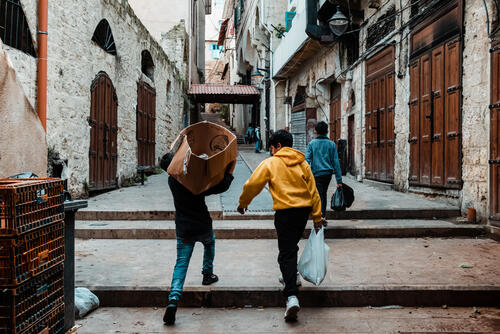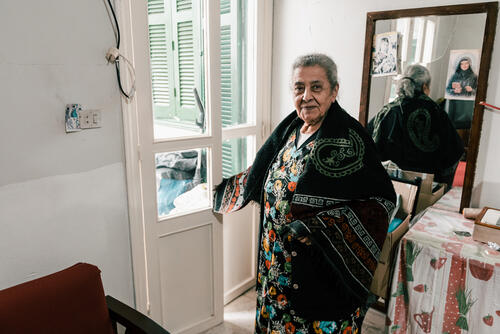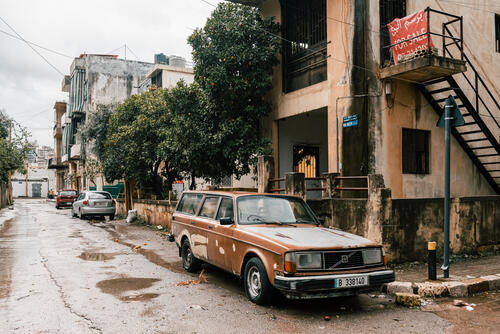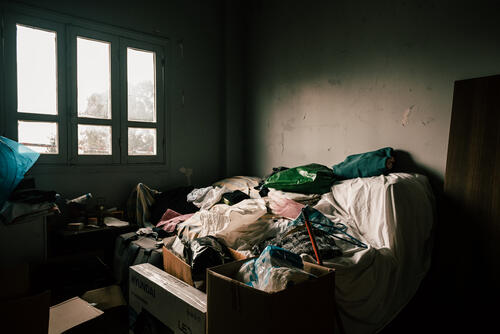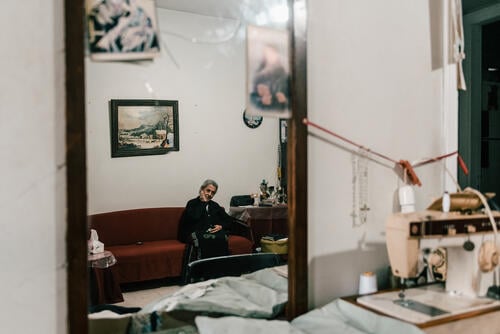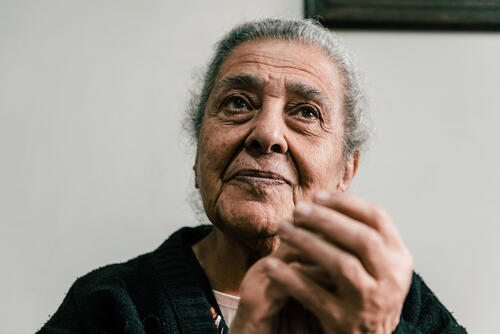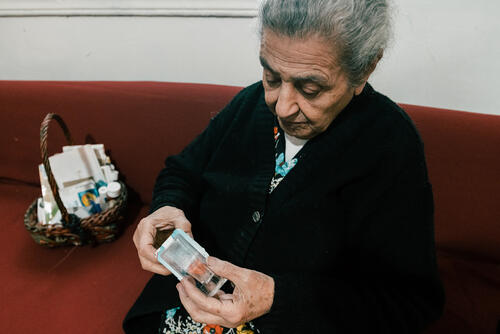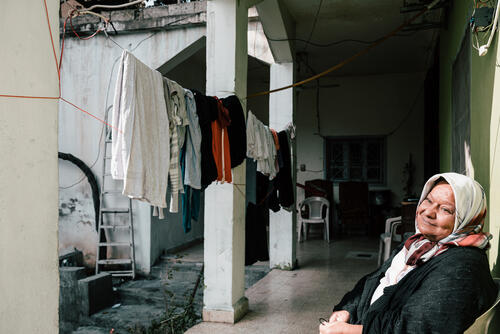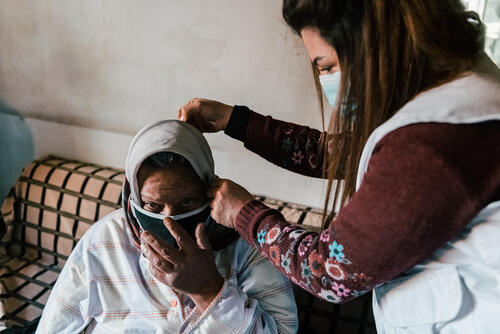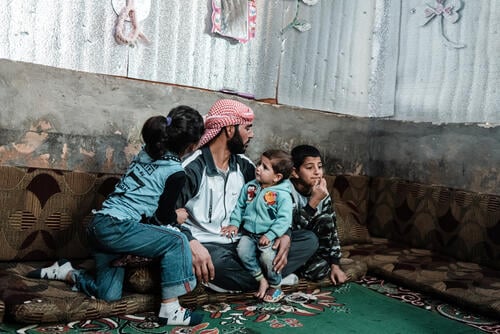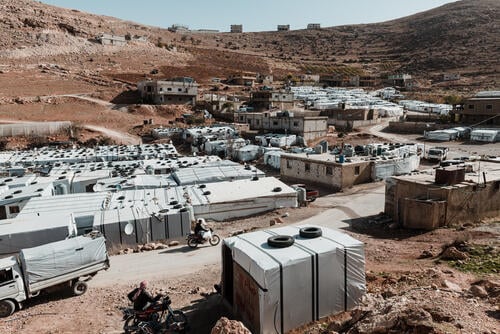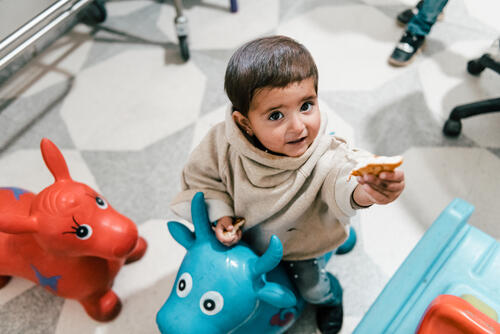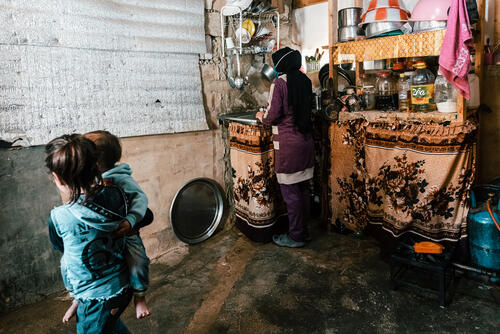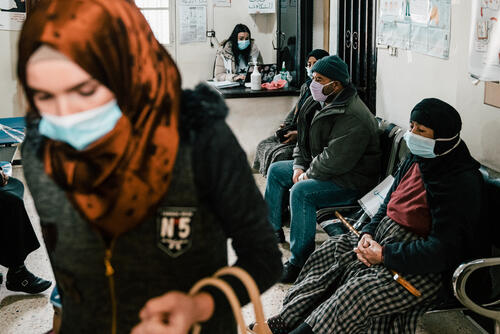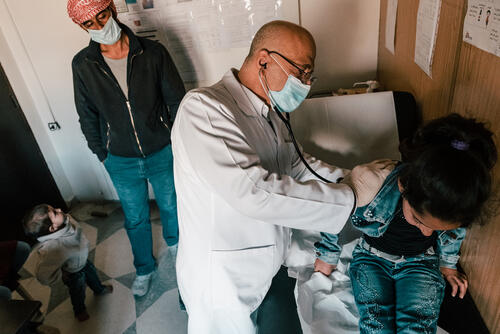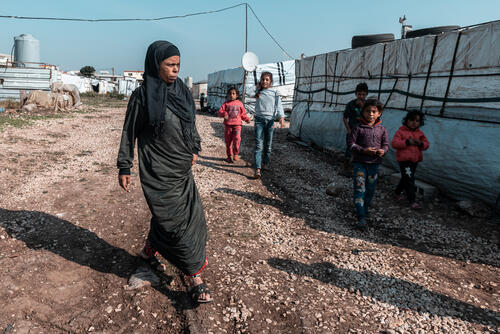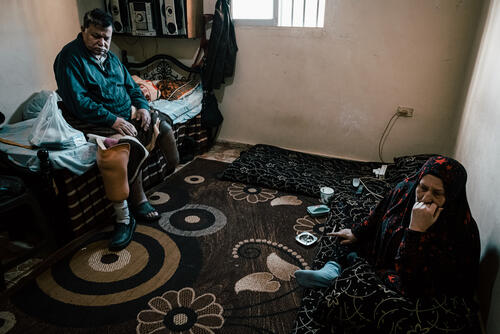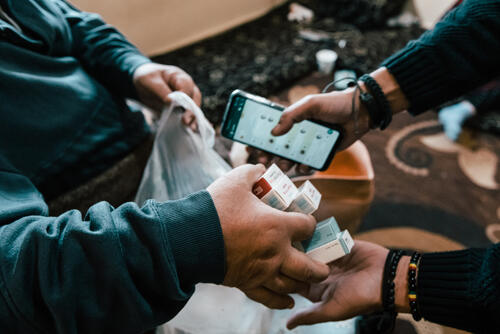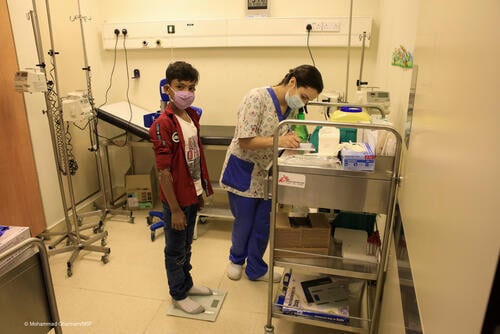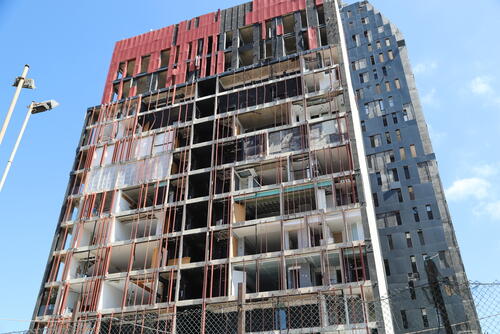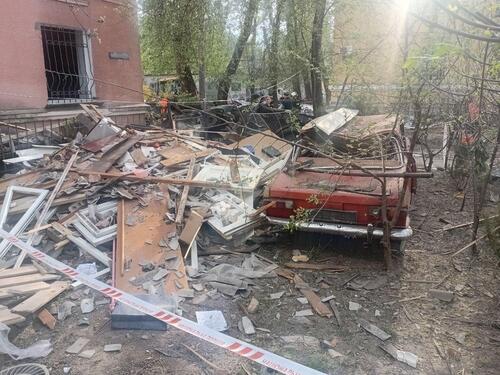Since late 2019, Lebanon has been grappling with its worst economic crisis in decades, social unrest and political turmoil. On top of that, and following the arrival of the COVID-19 pandemic at the start of 2020, a major explosion tore through the capital, Beirut, in August.
These overlapping crises have exacerbated people’s vulnerability and pushed thousands into poverty. All this comes in addition to a protracted situation for displaced people, with the small country hosting the largest number of refugees per capita in the world.
“This situation has compounded the needs of the population,” says Dr Caline Rehayem, MSF’s deputy medical coordinator for in Lebanon. “The socio-economic pressure, above all, has made the cost of basic goods, including food, more and more difficult to afford for many.”
“Medical fees have also become prohibitive for vulnerable groups in the country,” says Dr Rehayem. “This context is expected to worsen people’s health conditions and access to care, and our teams on the ground have already started to witness signs of deterioration.”
Over the past year, staff working in MSF clinics have observed an increase in vulnerability among our patients. Many of them are experiencing financial issues related to the country’s economic situation, which for some are having an impact on their ability to properly follow their treatment. The toll on people’s psychological well-being is also noticeable and is a major concern for MSF.
Deepening poverty
According to the UN, over half of Lebanon’s population is trapped in poverty - almost the double of the rate of last year.https://www.unescwa.org/news/Lebanon-poverty-2020 As for the Syrian refugees living in the country, it is estimated that 89 per cent live below the extreme poverty line.https://unscol.unmissions.org/nine-out-ten-syrian-refugee-families-lebanon-are-now-living-extreme-poverty-un-study-says This means they live with less than LBP10,000 per person per day – the equivalent of around US$1 based on the current unofficial trading rate in the market.
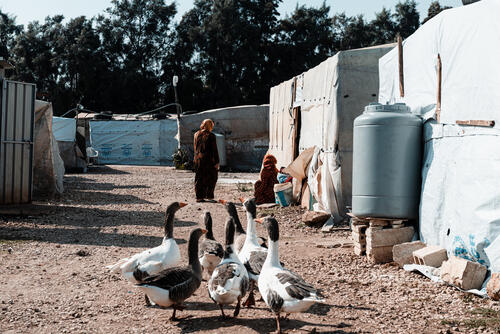
A growing number of Lebanese people have been knocking on MSF clinics’ doors over the past year, unable to cover their medical fees anymore - particularly in remote areas. In our clinic in Hermel, in the northern part of the Bekaa Valley, the number of Lebanese patients with non-communicable diseases requesting our services more than doubled between 2019 and 2020.
In Arsal, another town in Bekaa Valley, the number of paediatric consultations for young Lebanese patients at our clinic also increased by 100 per cent in the space of a year.
Lebanon’s highly privatized healthcare system was already a significant barrier for the country’s most vulnerable people, who struggled to access affordable care. The annual inflation rate, which surged to 133 per cent in November 2020,https://www.arabianbusiness.com/politics-economics/456350-lebanons-inflation-rate-registers-rare-dip-but-still-tops-133-in-november affected both Lebanese and refugees, and has directly impacted their ability to access healthcare.
“Two months ago, my husband lost his job. We have always been poor but at least before we were able to cope,” says Fatima, a 58-year-old Lebanese woman living in Hermel, who has diabetes and suffers from severe complications.
“We eat mostly lentils, bulgur and potatoes – a lot of potatoes. It’s not a very good diet for my medical condition, but that’s all we can afford,” says Fatima. “Without MSF, I’d have to rely on people’s charity to get my medicines.”
Patients living with diabetes are recommended to follow an appropriate diet to help control their blood sugar level and reduce the risks of developing complications. However, in MSF clinics across the country, patients reporting they're struggling to access basic food items, such as meat, chicken and even some vegetables, due to financial issues, have become a daily reality.
Ahmed is a Syrian refugee who lives in an informal tented settlement in the outskirts of Arsal. Four months ago, his youngest daughter, Zeinab, was diagnosed with anaemia.
“She looked very sick. She was very pale and ate very little,” he says. “The doctor prescribed her an iron supplement and advised us to feed her more vegetables and beans, since we can no longer afford meat. Everything has become at least four times more expensive and it’s only getting worse.”
Crisis upon crisis
The COVID-19 pandemic hitting the country in the spring, followed by the major Beirut port explosion in August 2020, have worsened the dire situation in Lebanon. The frail public health system, which was already facing regular shortages of drugs and other medical supplies due to the financial crisis, has been further impacted.
The August blast, which left thousands of people wounded and hundreds of thousands displaced, also destroyed infrastructure, including several hospitals. In addition, the Ministry of Health’s central warehouse, where all national medical supplies were stored, was seriously damaged.
A surveyA phone-based survey conducted from 9 to 22 September 2020. MSF teams carried out on a random sample of 253 of our patients with non-communicable diseases, seen as part of MSF post-blast emergency response, showed that 29 per cent of them had already interrupted or rationed their medication before the explosion. Almost half of those patients mentioned financial difficulties as the main reason; while 11 per cent said it was due to a shortage of drugs.
“When I go to the health centre, they often tell me there’s no medication available. The pharmacies regularly run out of drugs too”, says Mariam, a Lebanese mother of eight, who lives in Abdeh, in the north of Lebanon. Mariam suffers from chronic diseases, including diabetes and cardiovascular problems. Her youngest son has asthma.
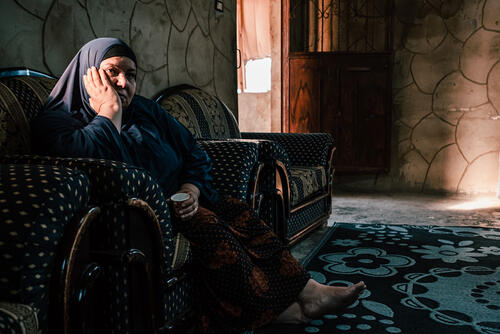
Since the explosion, the public health system has also struggled to cope with the growing number of COVID-19 cases, which rose from less than 200 cases a day before the blast, to an average of 1,500 cases per day in December 2020. To date, a total of over 199,000 cases have been reported.
Since August 2020, MSF has stepped up our efforts to respond to the COVID-19 pandemic response in Lebanon and support the national health system in dealing with the pandemic. We have temporarily turned our hospital in Bar Elias, in the Bekaa Valley, into a COVID-19 facility and are supporting an isolation centre in Sibline, in the south of the country.
On top of that, MSF teams are involved in testing, health promotion and training activities in different locations across the country. The lockdown measures, although necessary, have contributed to exacerbating people’s economic difficulties.
“My husband used to find daily labouring jobs in agriculture or construction,” says Samaher, a 40-year-old Syrian refugee who lives in an informal tented settlement in Akkar governorate, near the Syrian border.
“But with the economic situation and the coronavirus, it has become more difficult,” Samaher continues. “He only works two or three days a week, and sometimes there’s no work for a fortnight. When he doesn’t find work, we have to borrow money from the neighbours so we can buy food.”
A population on the edge
For many people in Lebanon, whether they are Lebanese, refugees or migrant workers, the current economic crisis and the deteriorating living conditions come on top of traumatic events and stressful experiences they have already had to face, such as conflict or displacement.
These continuous stress factors have contributed to disrupting people’s psychological well-being. Many patients who request MSF mental health services in Lebanon show symptoms related to emotional distress, depression, anxiety and hopelessness.
“I feel completely down and useless. The economic situation in the country is a disaster. I only hope we won’t end up in the streets,” says Tawfik, a Palestinian refugee living in Shatila camp in Beirut.
His family relies entirely on UN agencies and NGOs to survive.
“We are so tired,” adds Hanadi, his wife, unable to hold back her tears while she speaks.
This echoes the feelings of Fatima in Hermel, further north in the country.
“I cry a lot,” says Fatima. “I feel guilty about my daughter who has to bear responsibilities beyond her age. I can’t think of anything comforting. The economic crisis has been the final straw. All I want is to be able to live decently.”
As one blow follows another, people’s coping mechanisms are weakened and, for many, keeping their head above the water is becoming harder.
“We’re trying to help as much as we can in such a complex context and we are committed to continuing to doing so,” says Dr Rehayem. “But our capacities are also limited and we can’t respond to all the needs. It is disheartening to see people’s vulnerability increasing and more people requiring medical support.”



